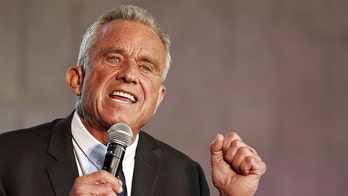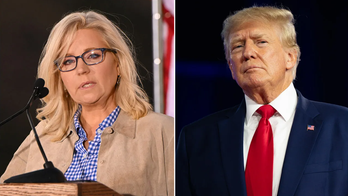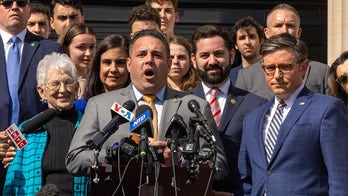Vice President Joe Biden insisted Sunday that despite the political stalemate in Baghdad, the United States remains on track for the drawdown of troops from Iraq by August -- comments that are in stark contrast to his position just a few years ago.
"I don't have a doubt in my mind that we'll be able to meet the commitment of having only 50,000 troops there and it will not in any way affect the physical stability of Iraq," he told ABC's "This Week."
He added, "There is a transition government. There is a government in place that's working."
Indeed White House press secretary Robert Gibbs Monday echoed the vice president's optimistic outlook, telling reporters, "I think that we are on the verge of making a considerable drawdown in Iraq, that, if I recall correctly, a year before that, many said wasn't going to happen."
But Biden's comments contradict what he said a few years ago when he advocated dividing Iraq into three parts based on ethnicity. He argued at a democratic presidential debate in August of 2007 that his plan would "separate the parties and give them some breathing room in order to establish some stability."
He added that the fundamental mistake both the Bush administration and his colleagues continued to make was simple, clinging to the hope that "there is any possibility in the lifetime of anyone here of having the Iraqis get together, have a unity government in Baghdad that pulls the country together."
When confronted Sunday about his change in attitude, the Vice President denied having ever suggested a three way partition and boasted that the country's political parties "are in negotiations right now to figure out how to allocate the power within that government. In other words, share power. And it is about just that. And it's underway. And it's going to happen."
Turning to Afghanistan, Biden urged patience with the nine year war, particularly when asked if America was winning. "It's too early to make a judgment," he said. "We don't even have all the troops of the so-called surge in place yet. But we still believe that the policy that the military signed onto, put together initially, signed onto is, in fact, going to work."
Asked for details about that policy, Biden suggested the current counterinsurgency plan was something he had originally initiated, but was unable to add any details. "Someday I'll be able to lay out exactly what the plan I offered was. It would be inappropriate to do that because it was so close to what, what in fact the plan ended up being that there was virtually no difference." In 2009, just days after being sworn in as vice president, Biden was a leading skeptic on the escalating war in Afghanistan, specifically arguing against sending forty thousand more troops -- a request from then top commander of American forces, General Stanley McChrystal.
The vice president wrapped up the one hour interview with Jake Tapper by assuring America, "We are making considerable progress against al Qaeda, which is our primary target. We're taking out significant numbers of the leadership in al Qaeda. And we are, in the process, which is painfully slow and difficult, training up Afghani forces in order to put them in a position where they can deal with their own insurgents."




